Contents
Discover the Delightful Flavors of Thyme and Season

Indulge your senses with the exquisite aromatics and culinary wonders of thyme. This savory herb has been cherished for centuries for its unique flavor and versatility in cooking.
Whether you’re a seasoned chef or just starting out in the kitchen, thyme is a must-have in your spice collection. Its distinct flavor adds depth and complexity to any dish, from hearty stews to delicate seafood.
Experience the magic of thyme as it infuses your cooking with its rich aroma and robust taste. This versatile herb can be used fresh or dried, allowing you to enjoy its delightful flavors all year round.
Enhance your favorite recipes with a sprinkle of thyme and let its natural oils release a symphony of flavors. From roasted vegetables to grilled meats, thyme is the secret ingredient that will take your dishes to the next level.
Embrace the culinary traditions of thyme and season your dishes with this timeless herb. Its earthy notes and subtle hints of lemon will transport you to a world of culinary delight.
“Thyme is the spice of life, adding depth and character to every dish.”
Don’t miss out on the opportunity to elevate your cooking with the captivating flavors of thyme. Discover the endless possibilities and let your taste buds embark on a journey of culinary excellence.
History and Origins

Thyme has a long and rich history in cooking and aromatics. This flavorful herb has been used for centuries to add a savory taste to dishes and to enhance the flavors of other ingredients. Thyme is a staple in many cuisines around the world and is often used as a key seasoning in Mediterranean and Middle Eastern dishes.
The origins of thyme can be traced back to ancient Egypt and Greece, where it was highly valued for its medicinal properties. It was believed to have healing powers and was used to treat various ailments. Thyme was also used as an aromatic herb in baths and as an incense in religious ceremonies.
Thyme’s popularity spread throughout Europe during the Middle Ages, where it was used as a seasoning for meats, soups, and stews. Its strong flavor and aroma made it a favorite spice among cooks and chefs. Thyme was also used to preserve food and prevent spoilage before the invention of refrigeration.
Today, thyme continues to be a beloved herb in the culinary world. Its unique flavor and versatility make it a popular choice for seasoning a wide variety of dishes. Whether used fresh or dried, thyme adds a delightful and aromatic touch to soups, sauces, roasted meats, and vegetables.
Next time you’re looking to add some extra flavor to your meals, be sure to reach for thyme. Its rich history and origins make it a timeless and essential spice for any kitchen.
Culinary Uses
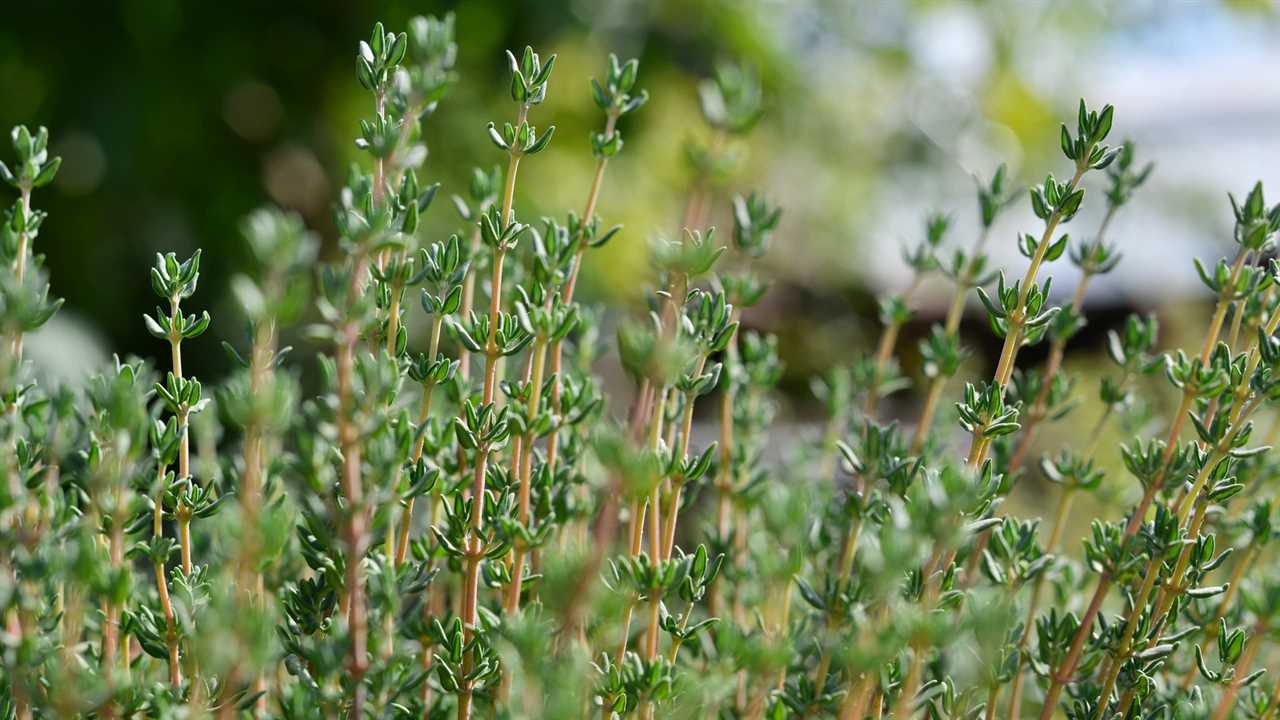
Thyme is a versatile and savory herb that can be used to season a wide variety of dishes. Its unique flavor and aroma make it a popular choice in cooking, adding depth and complexity to any recipe.
One of the most common culinary uses of thyme is as a seasoning for meats, such as chicken, beef, and lamb. The herb’s earthy and slightly minty flavor pairs well with the natural flavors of these meats, enhancing their taste and making them more delicious.
In addition to meats, thyme can also be used to season vegetables, soups, and stews. Its aromatic qualities make it a great choice for adding depth to these dishes, while its subtle flavor does not overpower the other ingredients.
Thyme is also a popular choice for making herb-infused oils and vinegars. By infusing thyme into these cooking essentials, you can add a hint of its flavor to a wide range of dishes, from salads to marinades.
When using thyme in your culinary creations, it’s important to remember that a little goes a long way. The herb’s flavor can be quite strong, so it’s best to start with a small amount and adjust to taste.
Whether you’re a seasoned chef or just starting out in the kitchen, thyme is a must-have culinary spice. Its unique flavor and versatility make it an essential ingredient for adding depth and complexity to your favorite dishes.
Health Benefits
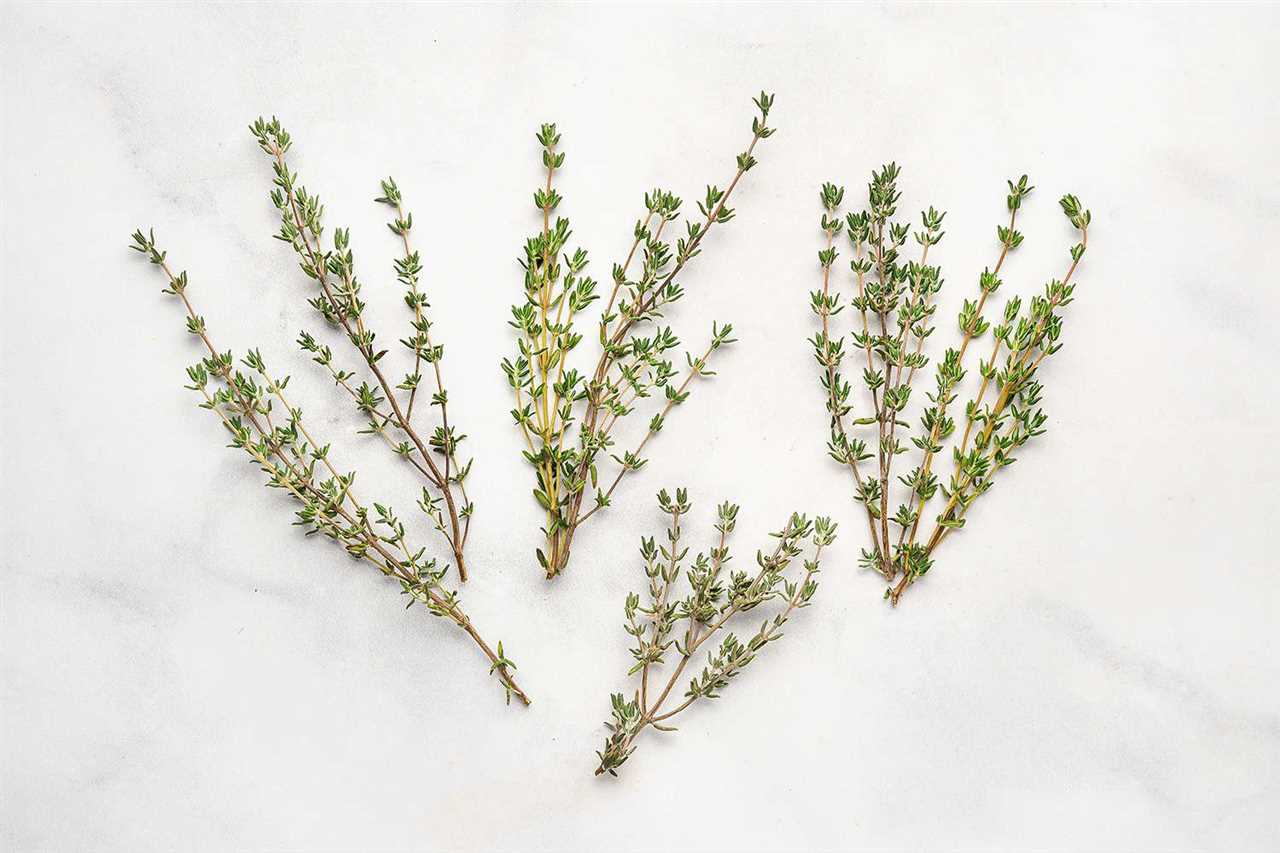
Thyme is not only a delicious spice that adds savory flavor to culinary creations, but it also offers a range of health benefits. This versatile herb has been used for centuries in cooking and traditional medicine.
1. Antioxidant Properties: Thyme is rich in antioxidants, which help protect the body against damage from free radicals. These compounds can help reduce the risk of chronic diseases such as heart disease and cancer.
2. Anti-Inflammatory Effects: Thyme contains anti-inflammatory compounds that can help reduce inflammation in the body. This can be beneficial for conditions such as arthritis and inflammatory bowel disease.
3. Immune-Boosting Abilities: Thyme has antimicrobial properties that can help boost the immune system and fight off infections. It can be especially effective against respiratory infections and coughs.
4. Digestive Aid: Thyme has been used as a digestive aid for centuries. It can help stimulate the production of digestive enzymes, improve digestion, and relieve symptoms such as bloating and gas.
5. Respiratory Health: Thyme has been traditionally used to treat respiratory conditions such as bronchitis and coughs. It can help relieve congestion, soothe the throat, and promote overall respiratory health.
6. Mood Enhancement: Thyme contains compounds that can help improve mood and reduce stress. It has been used in aromatherapy to promote relaxation and relieve anxiety.
With its delicious flavor and numerous health benefits, thyme is a must-have herb in your kitchen. Whether you’re cooking up a savory dish or looking to boost your immune system, thyme is a versatile and beneficial addition to your culinary arsenal.
Section 2: Exploring Thyme Varieties
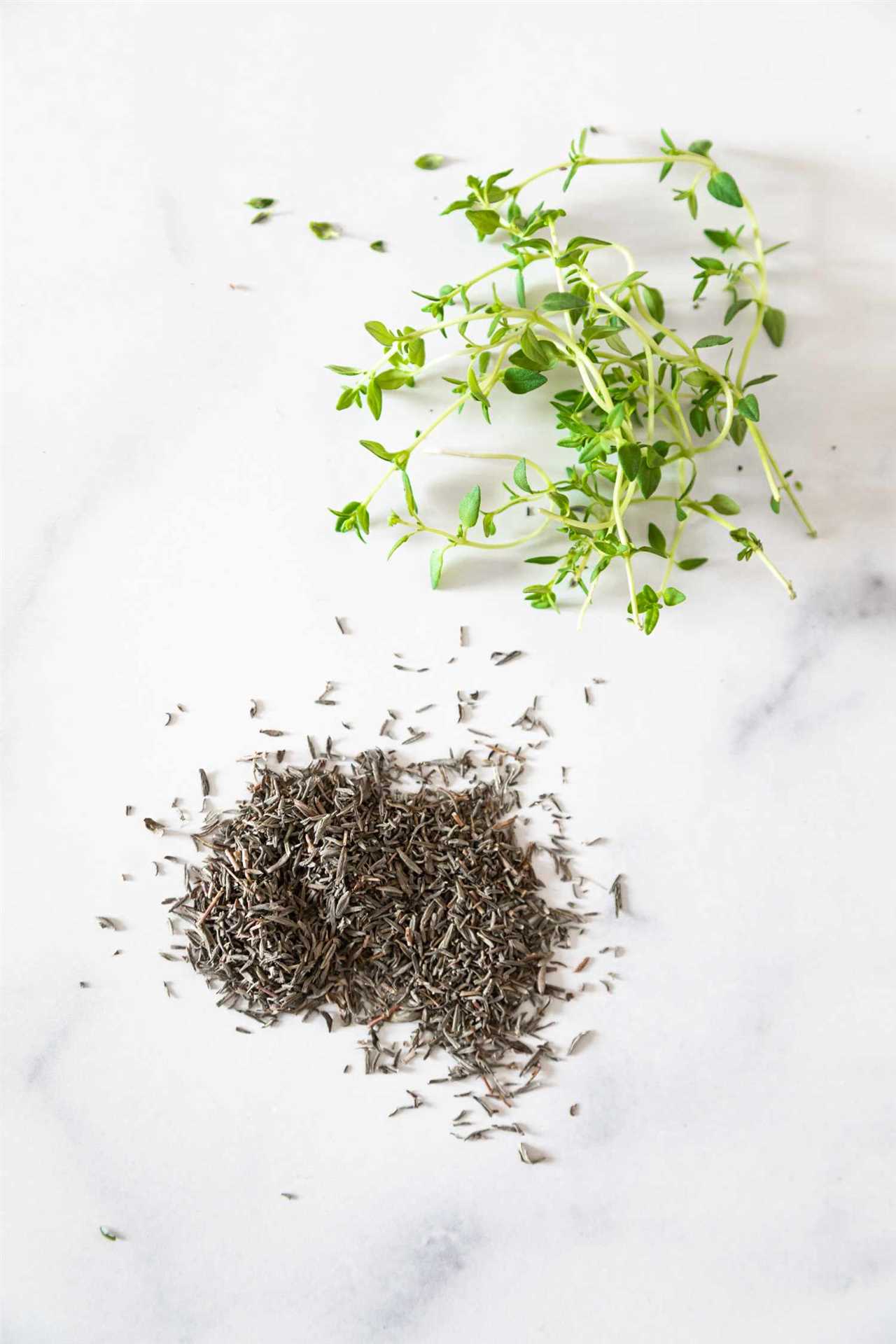
Thyme is an herb that is widely known for its aromatic qualities and its ability to enhance the flavors of various dishes. There are several varieties of thyme, each with its own unique characteristics and uses in cooking.
Lemon Thyme: Lemon thyme is a popular variety of thyme that has a citrusy flavor and aroma. It is often used in Mediterranean and Middle Eastern cuisines to add a bright and refreshing twist to dishes.
English Thyme: English thyme is the most common variety of thyme and is often used in traditional European cooking. It has a savory and slightly minty flavor that pairs well with a wide range of dishes, including roasted meats, soups, and stews.
French Thyme: French thyme, also known as summer thyme, has a more delicate flavor compared to other varieties. It is often used in French cuisine, particularly in dishes like bouquet garni and herbes de Provence.
Creeping Thyme: Creeping thyme is a low-growing variety of thyme that is often used as a ground cover in gardens. It has a strong and robust flavor that is perfect for seasoning grilled meats and vegetables.
Caraway Thyme: Caraway thyme is a unique variety of thyme that has a distinct taste reminiscent of caraway seeds. It is commonly used in German and Eastern European cuisines to add a hint of spice to dishes.
To fully explore the different flavors and aromatics of thyme, it is recommended to experiment with various varieties in your cooking. Whether you are a professional chef or a home cook, thyme can be a versatile spice that adds depth and complexity to your culinary creations.
Common Thyme
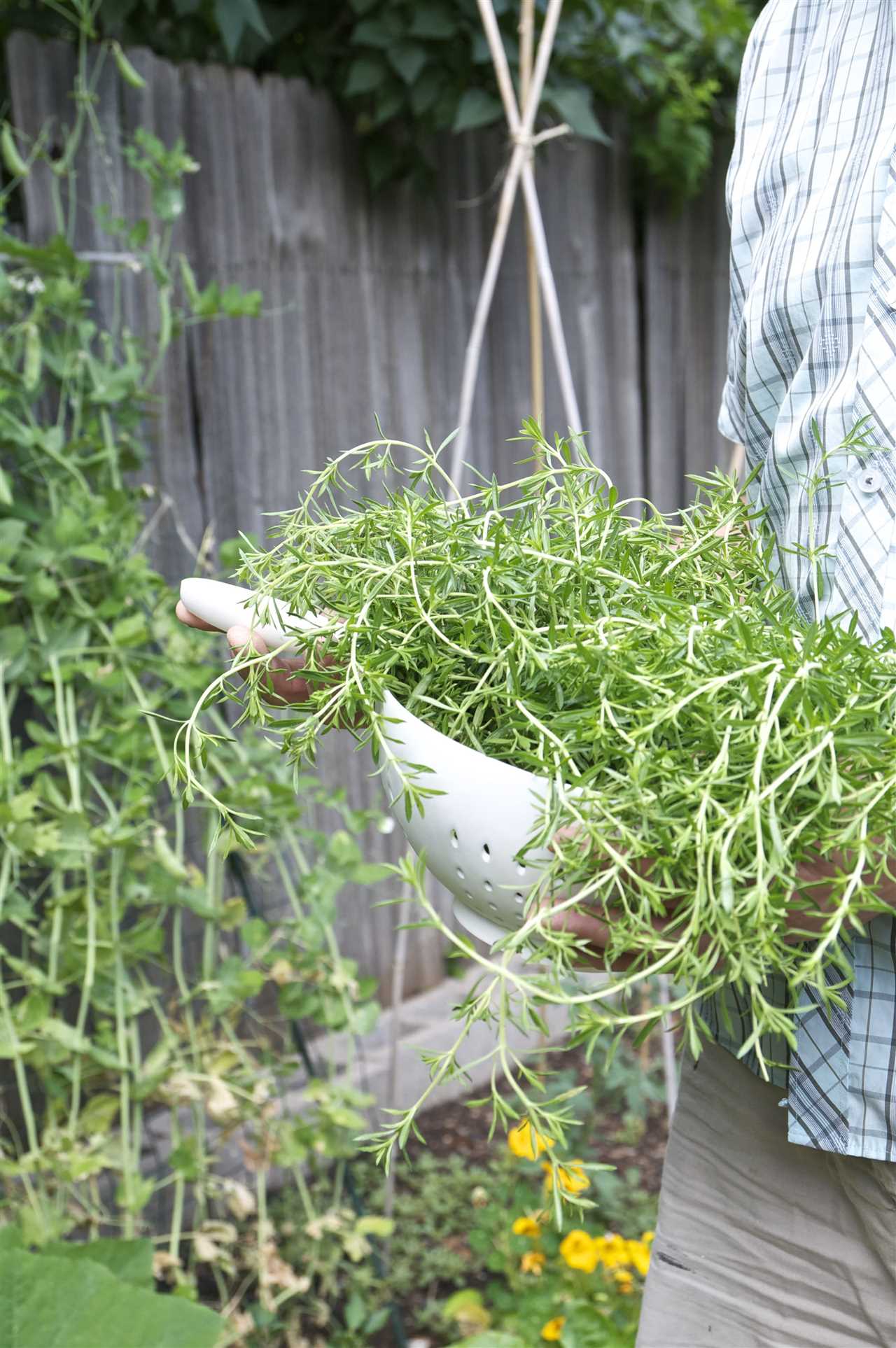
Discover the delightful flavors of thyme and season your dishes with this versatile and aromatic spice. Thyme is a popular herb that adds a unique flavor to a variety of dishes, making it a staple in many kitchens.
Thyme is known for its savory taste and fragrant aroma, which can enhance the flavors of both meat and vegetable dishes. Whether you’re cooking a hearty stew, a roasted chicken, or a fresh salad, thyme can add that extra touch of flavor that takes your dish to the next level.
Not only does thyme add a delicious flavor to your cooking, but it also offers several health benefits. Thyme is rich in antioxidants and has anti-inflammatory properties, making it a great addition to a healthy diet.
When using thyme in your cooking, you can choose between fresh or dried thyme. Fresh thyme has a more vibrant flavor, while dried thyme is more concentrated and has a longer shelf life. Both options can be used in a variety of dishes, so you can always have thyme on hand to season your meals.
To make the most out of your thyme, try using it in combination with other herbs and spices. Thyme pairs well with rosemary, oregano, and garlic, creating a flavorful blend that can elevate any dish.
So why wait? Start exploring the wonderful world of thyme and discover the endless possibilities it brings to your cooking. Whether you’re a seasoned chef or a beginner in the kitchen, thyme is sure to become your new favorite herb.
Lemon Thyme

Lemon thyme is a popular herb known for its aromatic and flavorful qualities. It is a versatile herb that can be used to season a variety of dishes, adding a delightful twist to your cooking.
Thyme is a culinary herb that has been used for centuries in cooking. It is known for its savory flavor and is often used to season meats, soups, and stews. Lemon thyme, with its citrusy notes, adds a refreshing and tangy flavor to your dishes.
Whether you are cooking a savory roast chicken, a hearty vegetable stew, or a light summer salad, lemon thyme is the perfect herb to enhance the flavors of your dish.
One of the best things about lemon thyme is its versatility. You can use it fresh or dried, depending on your preference and the availability of the herb. Fresh lemon thyme has a stronger flavor, while dried lemon thyme is more concentrated.
Here are some ideas for using lemon thyme in your cooking:
- Add fresh lemon thyme leaves to your marinades for grilled chicken or fish.
- Sprinkle dried lemon thyme over roasted vegetables for an extra burst of flavor.
- Infuse olive oil with lemon thyme and drizzle it over salads or grilled vegetables.
- Add lemon thyme to your homemade salad dressings for a zesty twist.
With its bright and refreshing flavor, lemon thyme is sure to elevate your culinary creations to new heights. Discover the delightful flavors of lemon thyme and season your dishes with this versatile herb.
French Thyme
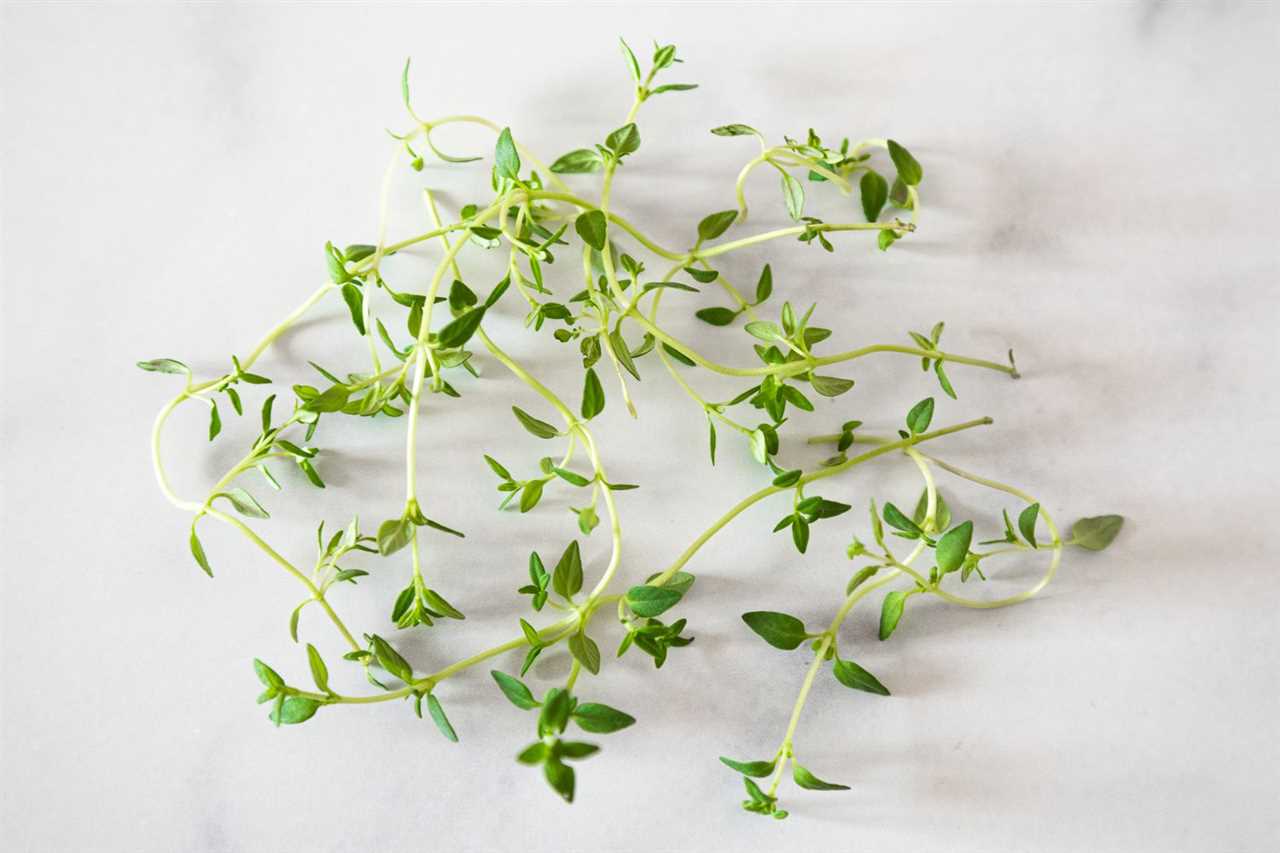
Discover the culinary delight of French Thyme, a versatile herb that adds a burst of flavor to any dish. Whether you’re cooking a savory soup, a delicious roast, or a refreshing salad, French Thyme is the perfect spice to enhance the taste and aroma of your meals.
Season your dishes with the distinctive taste of French Thyme. Its earthy and slightly minty flavor pairs well with a variety of ingredients, making it a popular choice among professional chefs and home cooks alike.
French Thyme is known for its rich aroma and can be used both fresh and dried. Sprinkle it over roasted vegetables, add it to marinades, or infuse it into oils and vinegars to elevate your cooking to the next level.
Not only does French Thyme enhance the taste of your food, but it also offers various health benefits. It contains antioxidants that help boost your immune system and has been used for centuries for its medicinal properties.
When it comes to cooking with herbs, French Thyme is a must-have in your kitchen. Its versatility and flavor make it a staple in many cuisines around the world. So why not add this aromatic herb to your spice collection and embark on a culinary adventure?
| Enhances Flavor | French Thyme adds a burst of flavor to your dishes, making them more delicious and enjoyable. |
| Versatile | Use French Thyme in a variety of dishes, from soups and stews to roasted meats and salads. |
| Health Benefits | French Thyme contains antioxidants and has been used for its medicinal properties for centuries. |
| Aromatic | The rich aroma of French Thyme will fill your kitchen and tantalize your taste buds. |
So why wait? Experience the culinary wonders of French Thyme and take your cooking to new heights. Add this flavorful herb to your pantry today!
Video:Discover the Delightful Flavors of Thyme and Season
How to Grow a THYME LAWN
Hello, I am Beverly J. Sanders, the voice behind the diverse articles you come across on styves.co.za. My passion lies in exploring the nuances of home improvement and sharing tips that can help you transform your living space into a haven of comfort and style. From the latest trends in home decor to practical cleaning advice, I cover a broad spectrum of topics to cater to a wide variety of interests.
In my recent works, I have delved into the advantages of incorporating a horizontal Murphy bed into your home to save space without compromising on design and functionality. I also explored the benefits of having a free-standing electric fireplace that not only adds warmth to your home but also brings a sleek and modern design to any living space. My articles are a rich resource, offering insights into different products and home improvement strategies that can enhance the quality of your life.
I believe in the power of details; a belief that reflects in my comprehensive guides where I discuss even the overlooked aspects of home decor, such as the impact of baseboard trim in enhancing the overall look and feel of your home. I am constantly on the lookout for innovative solutions and products that can add value to your home and life.
Join me in my exploration as I continue to bring you the latest trends, tips, and insights in the home improvement world. Let’s create a home that is not just a place to live, but a reflection of style and personality.